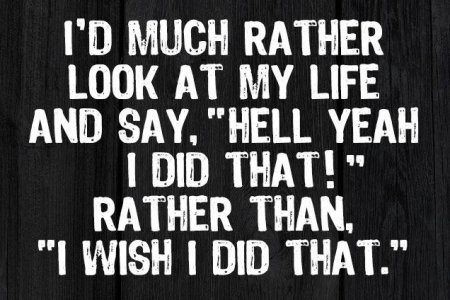mathjak107
Well-known Member
- Location
- bayside ,queens , ny
Except there is a flaw in that thinking .I am lucky to be mortgage free. I was just reviewing my property taxes last night getting ready to send the payment. In the scheme of things it might seem like a big hit but in reality it is not, still cheaper to live in my own home than in an apartment. The taxes will go down, at least 40% when I hit 65. Then they will be locked in somewhat. We are blessed in that regard. I have just been trying to make a new budget for the next 2 or 3 years based on all the information I can gather. Increased SS, insurance cost once I start Medicare, will it be better to get an advantage plan or keep my federal coverage. Looks like federal will win that one so far.
I always thought I would get to the point I would not have to worry, not to be constantly comparing options. That is not the case for most of us, retired or not, fixed income or not, we all have to be proactive in watching the financial and insurance options we have available.
an important part of the equation is if you sold the house , got an apartment because you no longer need a whole house and that money tied up in the house was invested in a balanced portfolio it would be generating an average of 6% a year over the long haul Providing a nice cash flow and the comfort of liquid assets that can be had with the push of a button.
we rent now and if we bought a similar apartment to ours as a condo it would cost us less on the surface .
but once you figure that the over 400k spent on that apartment would no longer be generating a minimum of 24k in income that equation changes ..
it actually would cost us 18k a year in cash flow more then renting If we bought .
the fact we would have a paid off condo in retirement means nothing ..we can’t spend the hall closet at the supermarket. More important to us is the cash flow we can enjoy and spend ..
plus we have the security of having access to our money instantly if needed and not count on costly loans if we ever wanted our money unlike when it’s trapped in a house .
actually we took it a step further ..we sold our house in 2003 and bought a extremely lucrative commercial real estate business in Manhattan .
we sold that off over the years and now the money we made using that money no longer in a house can buy multiple homes like we had If we wanted ..so today that money generates enough in our conservative balanced portfolio to not only pay the rent but our entire living expenses .
so I love these comparisons people do but they forgot those hundreds of thousands of dollars trapped in the house and the income not being generated by that money when they compare to renting .
I am not advocating renting in many parts of the country because I wouldn’t want to deal with some amateur landlord wanna bee but when it comes to the usual comparison people do they leave out an important financial consideration which is what that money tied up in the house would be bringing in .
here in nyc renting favors buying because we have mostly high rise living which has very different metrics in cost to a house .
you can rent a two bedroom , 2 bath apartment with pool , tennis courts and gated entry here in queens for about 2600 a month ..single family homes start at 7 figures .
So most people rarely rent what they would buy …so apple to Apple comparisons can be rare in the real world since most don’t rent as much house as they would buy ..especially if rentals offer apartment houses and high rises .
plus nyc has very strong tenant laws so most hi rise buildings have guaranteed renewal and rent increases are determined by a voting board yearly .
so not all places have an advantage to owning when one has choices of selling what they have and pocketing a lump sum to invest elsewhere.
but certainly in all cases the cash flow not being generated on that money tied up in the house has to be accounted for in any comparison
Last edited:


